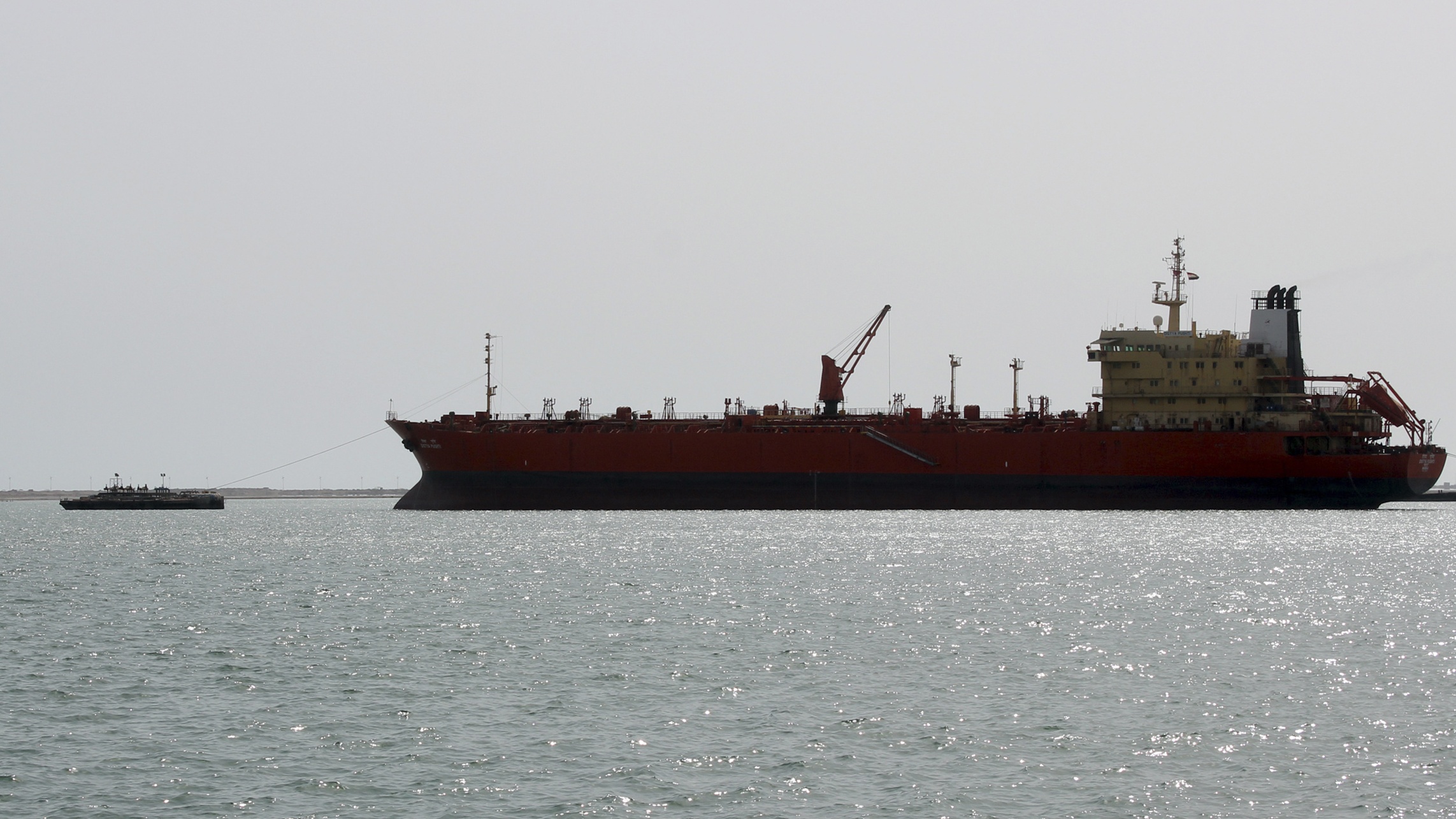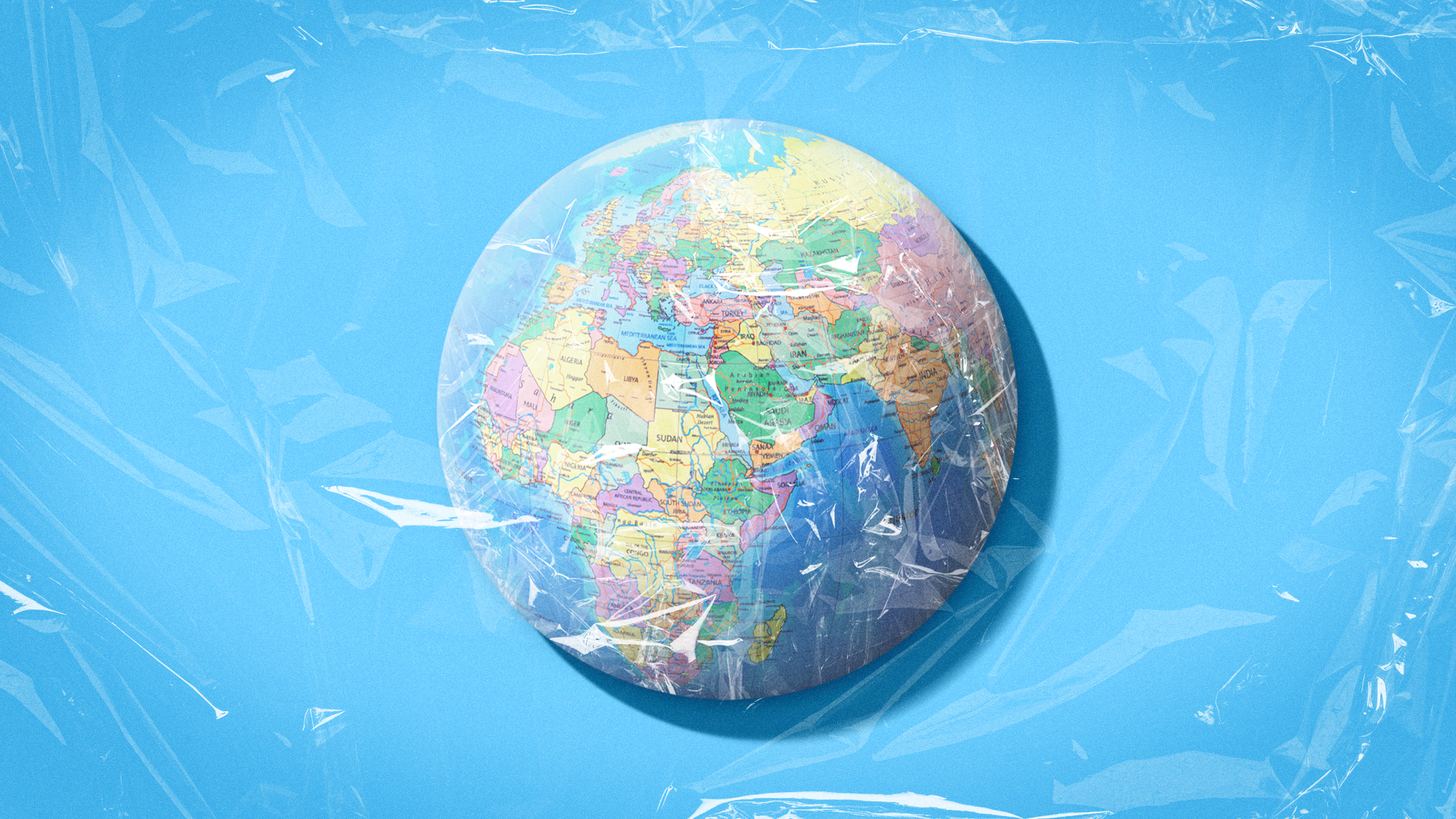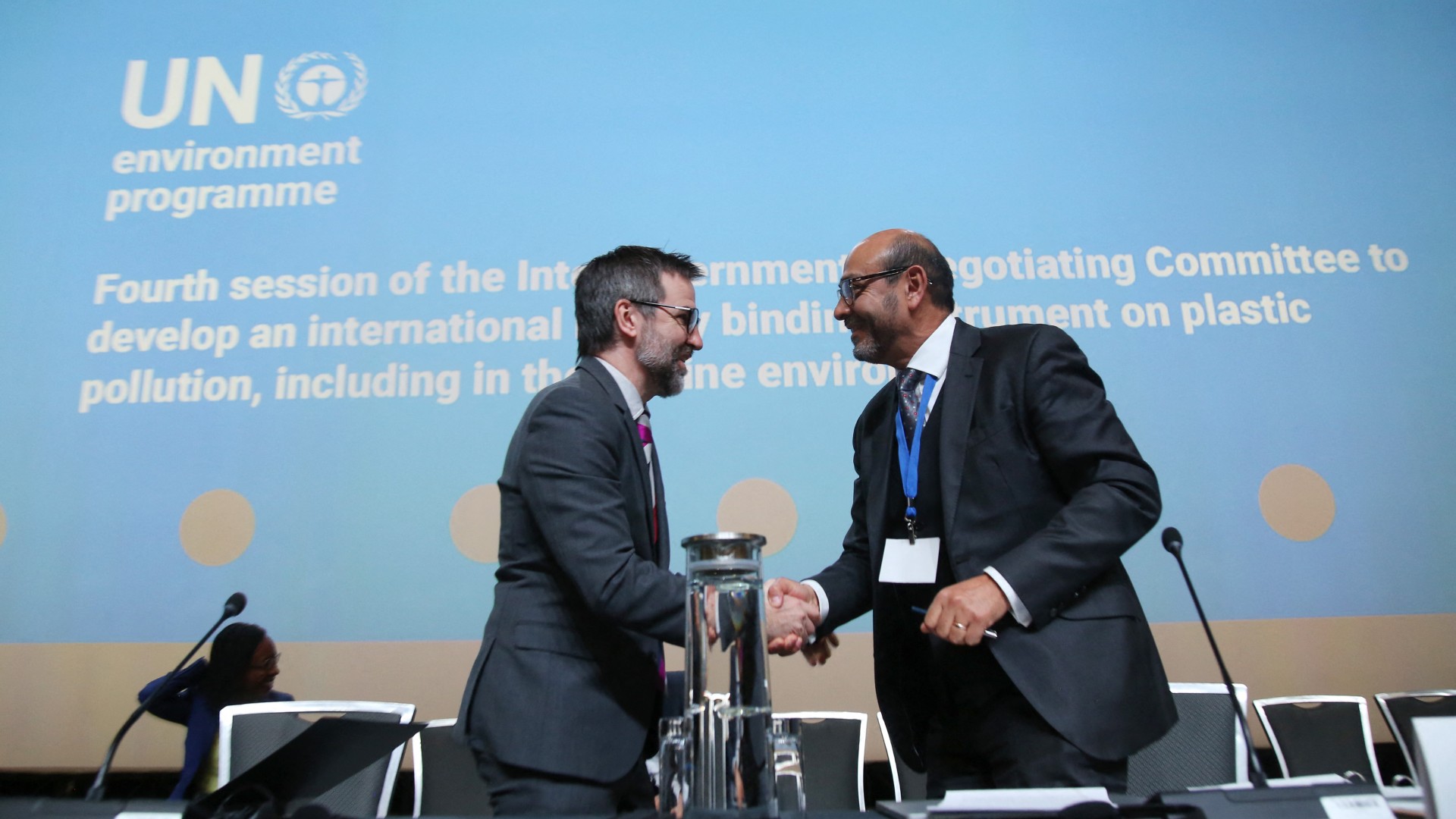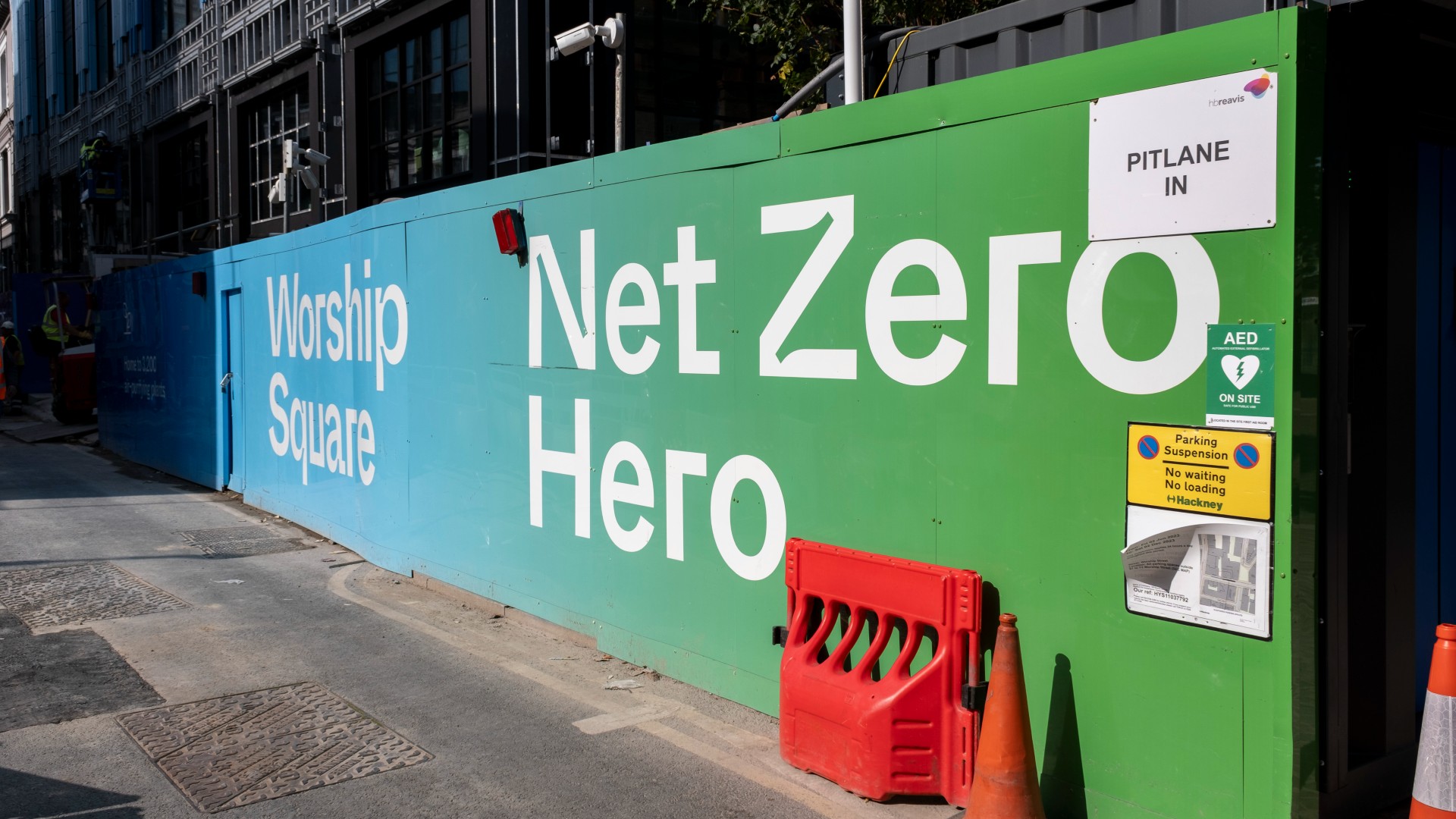Red Sea ‘as bad for pollution as major oil nations’ - but how?
Unique geographical features cause natural greenhouse gas emissions, study finds

A free daily email with the biggest news stories of the day – and the best features from TheWeek.com
You are now subscribed
Your newsletter sign-up was successful
The Red Sea is causing greenhouse gas pollution as bad as that produced by major oil-producing countries, according to a new report.
Researchers from the Max Planck Institute for Chemistry in Germany found that the Red Sea releases 220,000 tonnes of naturally occurring hydrocarbon gases annually, The Times reports.
This is comparable to the man-made pollution produced by major oil producers such as Iraq, the UAE and Kuwait.
The Week
Escape your echo chamber. Get the facts behind the news, plus analysis from multiple perspectives.

Sign up for The Week's Free Newsletters
From our morning news briefing to a weekly Good News Newsletter, get the best of The Week delivered directly to your inbox.
From our morning news briefing to a weekly Good News Newsletter, get the best of The Week delivered directly to your inbox.
How is the Red Sea such a pollutant?
The research team made the discovery in 2017, when they noticed that levels of ethane and propane in the air above the Red Sea were up to 40 times higher than predicted, says the Times.
However, they have only now discovered what is causing the high pollution levels.
Ethane and propane gases buried in reservoirs under the sea are rising up and leaking into the atmosphere, Singapore-based The Straits Times reports.
A free daily email with the biggest news stories of the day – and the best features from TheWeek.com
The gases come from deposits in the Gulf of Suez and Aquaba, which “mix with emissions from industrial shipping and turn into noxious pollutants that are very harmful to human health”, the paper adds.
How is the Red Sea different from others?
“The Red Sea... has some unique geological features,” says the study, led by Efstratios Bourtsoukidis.
This is because the water in the Red Sea, which ranges from 300m to 2,000m deep, is the warmest and saltiest deep water in the world.
According to iflscience.com, the saltiness means the sea has “exceptionally efficient saline transportation systems”, which also allows the gases to reach the surface.
–––––––––––––––––––––––––––––––For a round-up of the most important stories from around the world - and a concise, refreshing and balanced take on the week’s news agenda - try The Week magazine. Start your trial subscription today –––––––––––––––––––––––––––––––
Will it get worse?
Yes, according to the experts.
The Max Planck team believes that because of the way deep-water circulation works, the emissions in the winter are likely to be higher than the summer, when their measurements were made. An expected rise in shipping levels will also make matters worse, they say.
“In the coming decades, ship traffic through the Red Sea and Suez Canal is expected to continue to increase strongly, with a concomitant rise in nitrogen oxide emissions,” said Boursoukidis.
“Such increase will amplify the role of this source, leading to significant deterioration of the regional air quality.”
As the Times explains, nitrogen oxide emissions “interact with ethane and propane and result in the production of a polluting ‘smog’”.
-
 6 of the world’s most accessible destinations
6 of the world’s most accessible destinationsThe Week Recommends Experience all of Berlin, Singapore and Sydney
-
 How the FCC’s ‘equal time’ rule works
How the FCC’s ‘equal time’ rule worksIn the Spotlight The law is at the heart of the Colbert-CBS conflict
-
 What is the endgame in the DHS shutdown?
What is the endgame in the DHS shutdown?Today’s Big Question Democrats want to rein in ICE’s immigration crackdown
-
 The environmental cost of GLP-1s
The environmental cost of GLP-1sThe explainer Producing the drugs is a dirty process
-
 ‘Like a gas chamber’: the air pollution throttling Delhi
‘Like a gas chamber’: the air pollution throttling DelhiUnder The Radar Indian capital has tried cloud seeding to address the crisis, which has seen schools closed and outdoor events suspended
-
 Why is the world so divided over plastics?
Why is the world so divided over plastics?Today's Big Question UN negotiations on first global plastic treaty are at stake, as fossil fuel companies, petrostates and plastic industry work to resist a legal cap on production
-
 Anti-anxiety drug has a not-too-surprising effect on fish
Anti-anxiety drug has a not-too-surprising effect on fishUnder the radar The fish act bolder and take more risks
-
 Oysters from New York's past could shore up its future
Oysters from New York's past could shore up its futureUnder the Radar Project aims to seed a billion oysters in the city's waterways to improve water quality, fight coastal erosion and protect against storm surges
-
 Ottawa climate talks: can global plastic problem be solved?
Ottawa climate talks: can global plastic problem be solved?In the Spotlight Nations aim to draft world's first treaty on plastic pollution, but resistance from oil- and gas-producing countries could limit scope
-
 EPA limits carcinogenic emissions at 218 US plants
EPA limits carcinogenic emissions at 218 US plantsSpeed Read The new rule aims to reduce cancer-causing air pollution in areas like Louisiana's 'Cancer Alley'
-
 The push for net zero
The push for net zeroThe Explainer Britain has committed to reaching net-zero carbon emissions by 2050. What will this involve?